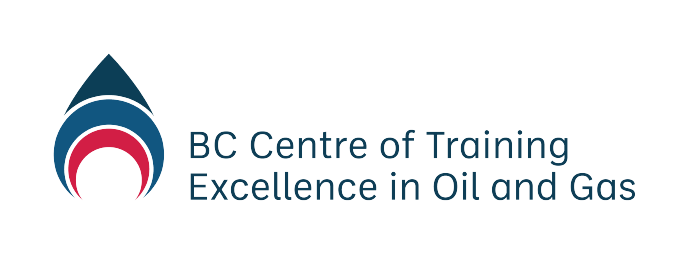-
Module 2.0 How to be Successful in this Course
-
Module 2.1 Introduction to Natural Gas
-
Module 2.2 The Natural Gas Industry in British Columbia
- Overview
- Learning Outcomes
- Natural Gas Science – The Simple Version
- Natural Gas Science – Chemistry
- Natural Gas Science – Physics
- Natural Gas Science – Units of Measurement
- Natural Gas Science – Geology
- Natural Gas Resources and Uses
- Oversight of the Natural Gas Industry
- Understanding Land Rights and Natural Gas
- Energy and the Future
-
Module 2.3 Upstream – Well Site Selection, Preparation and Drilling, Completion, Production, Water Recycling, and Reclamation
- Learning Outcomes
- The Upstream Sector – Extraction and Processing
- The Upstream Sector – Exploration and Site Selection
- The Upstream Sector – Preparation and Drilling
- The Upstream Sector – Completion
- The Upstream Sector – Production
- The Upstream Sector – Water Recycling
- The Upstream Sector – Reclamation
- Upstream Companies and Jobs in British Columbia – Companies
- Upstream Companies and Jobs in British Columbia – Industry Associations
- Upstream Companies and Jobs in British Columbia – Professional Associations
- New Vocabulary
-
Module 2.4 Midstream – Transportation, Processing, Refining
- Learning Outcomes
- The Midstream Sector
- The Midstream Sector – Processing Natural Gas
- The Midstream Sector – Liquefied Natural Gas
- The Midstream Sector – An Emerging Industry
- The Midstream Sector – Processing LNG
- The Midstream Sector – Proposed LNG Projects in British Columbia
- Transportation
- Midstream Companies and Jobs in British Columbia
-
Module 2.5 Downstream – Refining and Markets
-
Module 2.6 Health and Wellness in the Natural Gas Industry
-
Module 2.7 Safety
-
Module 2.8 Terminology and Communication
-
Module 2.9 Jobs and Careers
- Learning Outcomes
- Industry Outlook
- Technology is Changing Workforce and Skills
- Employment in the Natural Gas Industry
- Employment in the Natural Gas Industry – Types of Employment
- Employment in the Natural Gas Industry – Range of Jobs
- Employment in the Natural Gas Industry – High Demand Jobs and Occupations
- Occupational Education and Training
-
Module 3.0 How to be a Valued Employee
-
Module 3.1 Identifying Interests and Skills
-
Module 3.2 Looking for Employment in Natural Gas
-
Module 3.3 Applying for Employment in Natural Gas
This section contains a sampling of professional and technical associations and societies, and their respective websites. These websites offer insights and invaluable information for individuals looking for careers in natural gas.
Professional and technical associations are usually organized around the occupation (i.e., geologist, geophysicist, engineers, surveyors, etc.) or area of responsibility (i.e., landmen, land administrators, drilling engineers, technicians, technologists, etc.). Most of these associations are national in scope, but some are provincial. It is not unusual for an individual to belong to one or more associations.
Website 9: Association of Consulting Engineering Companies – Canada (ACEC)
https://www.acec.ca/
ACEC is the not-for-profit organization for Canadian consulting engineering companies, representing the commercial interests of businesses that provide professional engineering services, to both the public and the private sector.
Website 10: Applied Science Technologists and Technicians of BC (ASTTBC)
ASTTBC is a not-for-profit organization that provides professional certification of technologists and technicians in BC for sixteen disciplines and nine special certifications in the broad field of applied science.
Website 11: Canadian Association of Professional Landmen (CAPL)
https://www.landman.ca/
The CAPL is a non-profit voluntary professional association for landmen in Canada. A mineral landmen is an integral part of an exploration and development team of professionals that includes engineers, geologists and geophysicists and is directly involved in the acquisition, disposition and management of a company’s most important asset – its petroleum and natural gas rights.
Website 12: Canadian Association of Petroleum Land Administration (CAPLA)
http://caplacanada.org
CAPLA members are land administration professionals who work in the energy industry managing the entire land asset life cycle, from the time a parcel of land is acquired, through the exploration and development stages, and during the final disposition or reclamation phase.
Website 13: Association of Canada Land Surveyors (ACLS)
The ACLS is the national licensing body for professionals surveying in the three Canadian territories, in the Federal parks, on First Nation reserves, on and under the surface of Canada’s oceans.
Website 14: First Nations Limited Partnership
The First Nations (PTP) Group Limited Partnership (FNLP) comprises 16 First Nations in B.C. who together negotiated and concluded a precedent-setting commercial benefits agreement regarding the Pacific Trail Pipelines (PTP) project.
Website 15: First Nations LNG Alliance
This group advocates on behalf of First Nations by providing in-depth research and insight in the many issues and concerns surrounding LNG development in B.C. They seek to connect people with resources, information, and support.
Website 16: Careers in Oil + Gas
Information regarding additional Canadian technical/ professional societies and associations can be found at this website.
